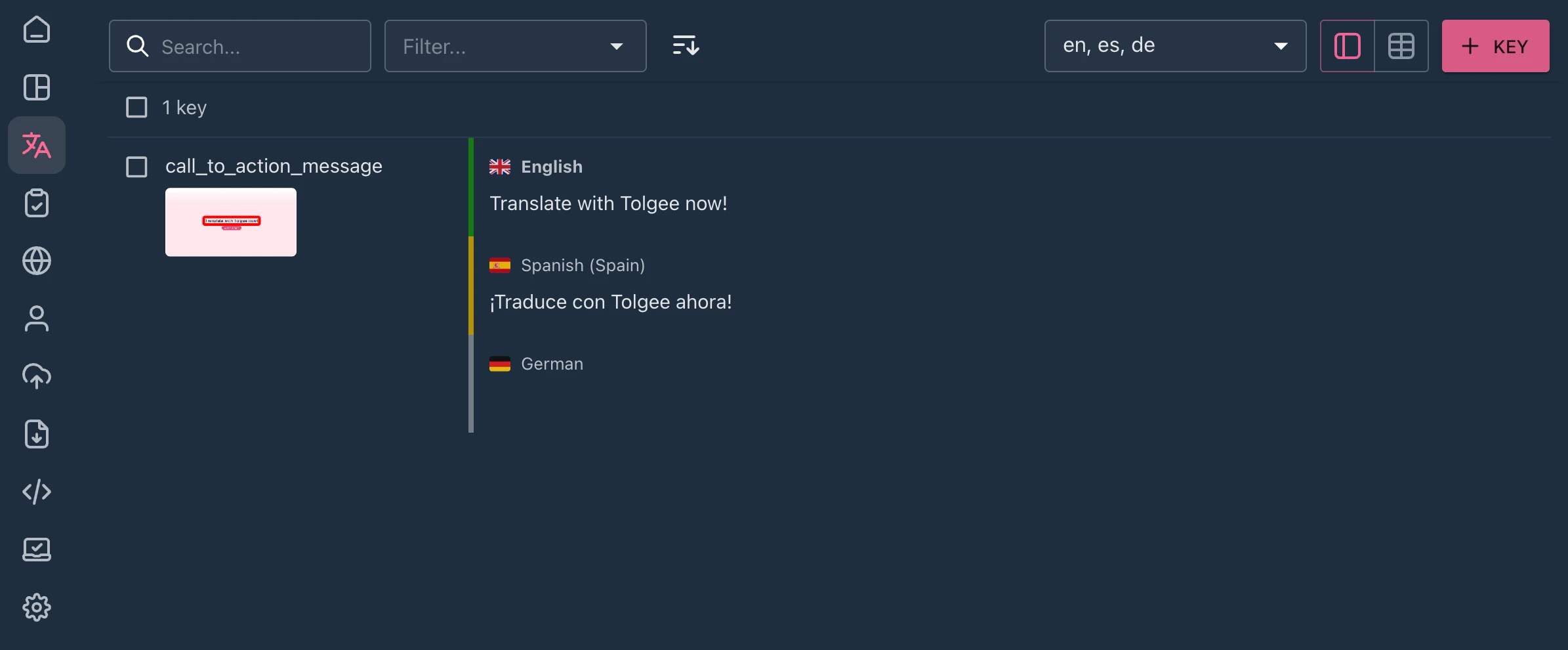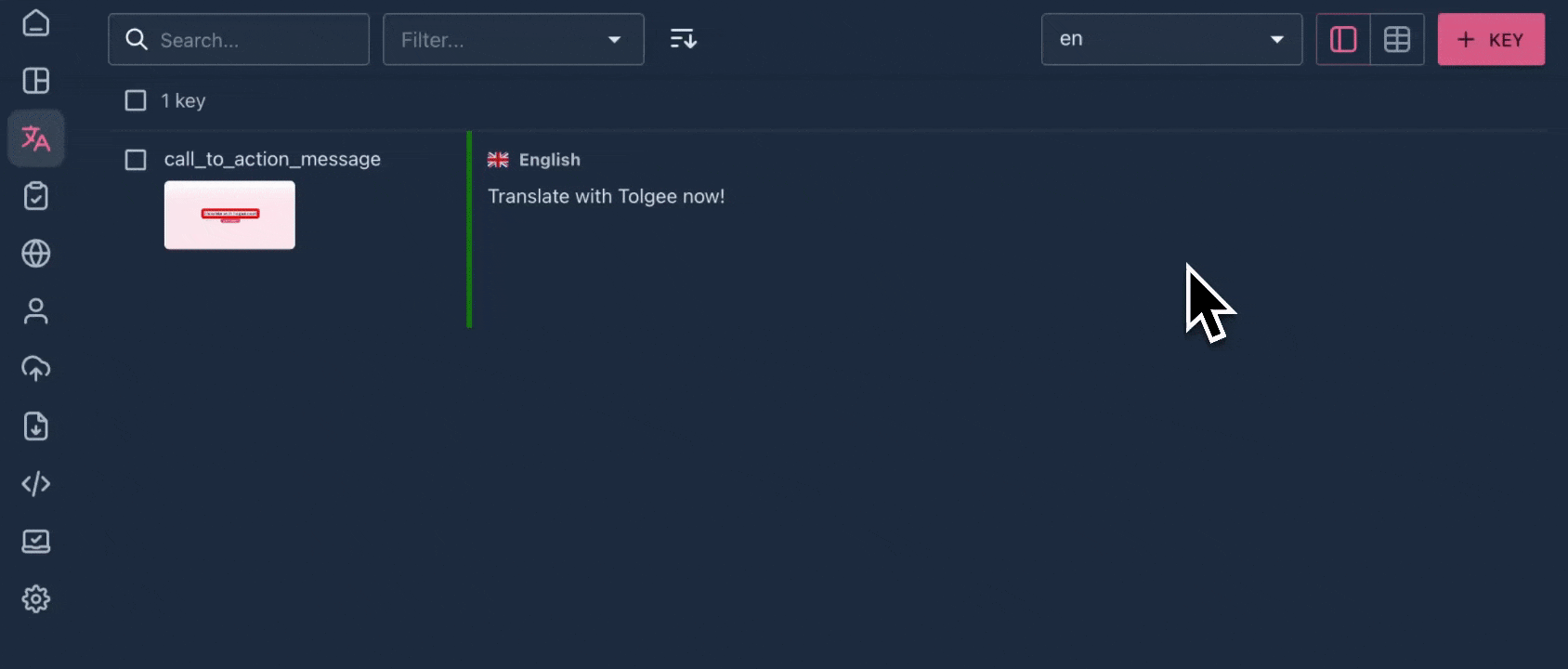Understanding Translation States
Translation management is important when you want to ensure that the quality of the text you translate meets your standards. Changing each translation's status helps track whether the translation is ready or still needs to be reviewed. This feature allows you to ensure that everything is prepared before finalizing your translation.
The Three Translation States
Tolgee categorizes translations into three states, each visually shown by a colored bar near the translated key:
- Gray: Untranslated
- Yellow: Translated but not reviewed
- Green: Reviewed

The color-coding feature helps you to check the status of a translation. This system makes it visual and easy to go through so that you can quickly check if you have completed everything.
Working with Translation States
You can find the translation keys and the translations in Translation View on Tolgee. You will see translations in your base language. To show more languages of your project, you can do the following:
- Click on the language bar at the top right that shows the currently selected languages
- Select the project languages that you want to see and check
- Now you can view all the translations and work with the states
Quality Assurance in Translation
The reviewer of the project usually performs the following functions with Tolgee:
- Approving: Changing a translation from "Translated" to "Reviewed" status. It can be done by clicking the "Mark as Reviewed" button at the top right corner of the translation.
- Reverting Approvals: If a previously approved translation needs changes, the same button to change it back to "Translated" status can be used
- Comments: See the string history in the bottom part of the side panel when the translation is open for editing
- Tracking Changes: The history of changes can be found after clicking Edit

Benefits of State-Based Translation Management
There are a few advantages of the state-based approach:
- Visual indicators show your project progress
- It makes sure translations meet quality standards after the review
- Saves time and improves collaboration
Additionally, the history can be checked to see which decisions were made and when they were made, and comments let you discuss some issues without leaving the platform, so you know what is being discussed.
Useful Workflows for Translation Quality Management
When using Tolgee's state system, teams can set up different localization workflows. An example of such a workflow is as follows:
| State | Action Required | Responsibility |
|---|---|---|
| Gray | Translation needed | Translator |
| Yellow | Quality review needed | Reviewer |
| Green | Ready for deployment | Not needed |
The approach prevents the premature deployment of unreviewed content. It keeps clear ownership at each stage, which helps bigger teams.
Manage Localization Easier
Tolgee's translation states help transform localization from chaos to a manageable workflow. Tolgee helps teams of different sizes deliver accurate, high-quality translations. It provides clear guides for translation progress and assists with proper quality assurance.
Ready to make your localization faster and easier? Try Tolgee's platform today and see how state management of translation can improve your global strategy.